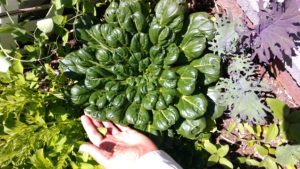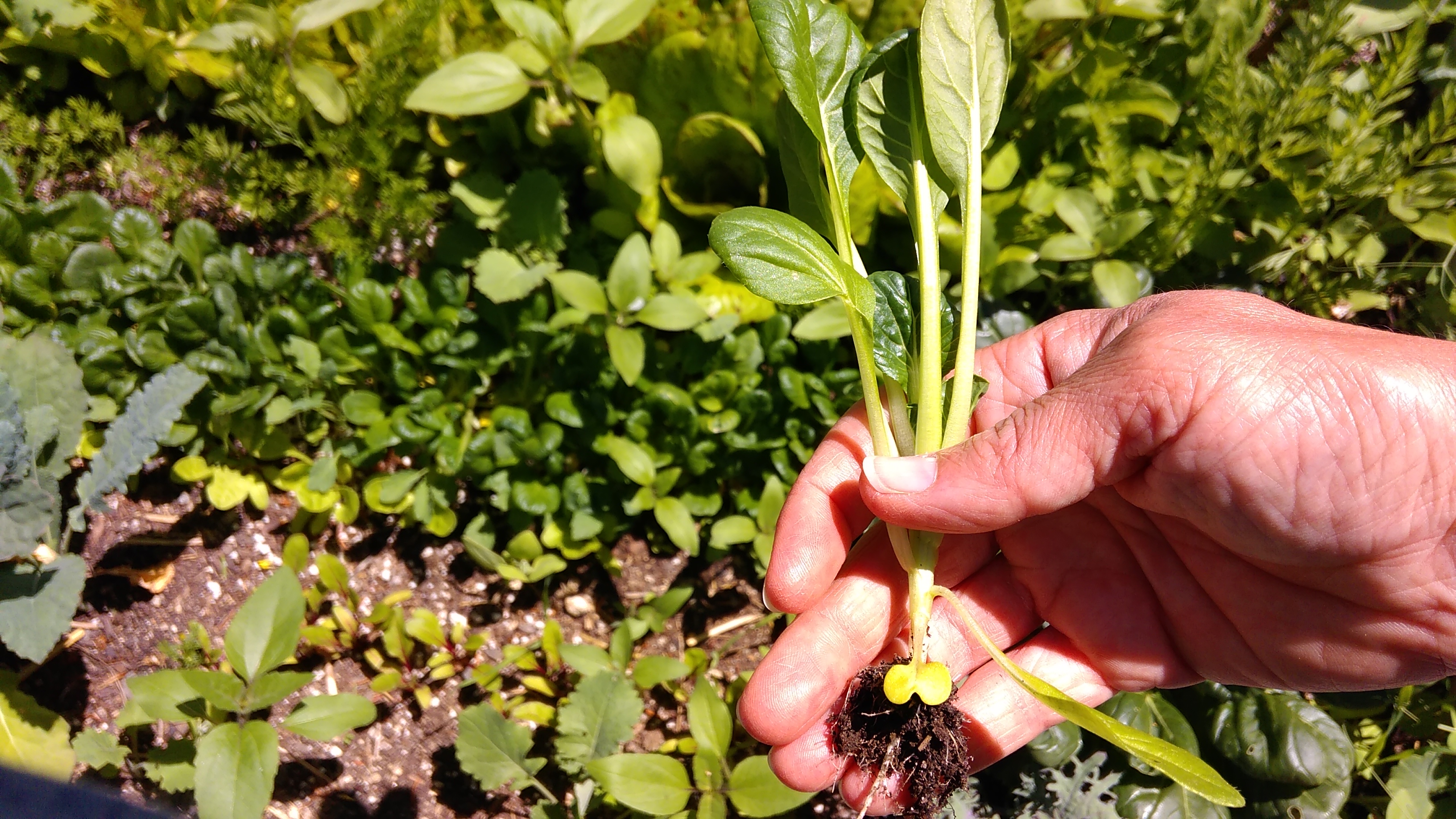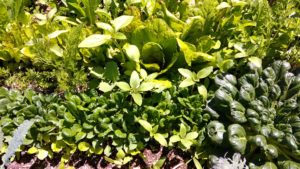The feeling I get when I thin out seedlings in my garden is so similar to how I feel when I begin removing scenes that aren’t making the cut in a manuscript. “But, but… I like that one. Really like it! Why can’t I leave things as is?”
Well. Because crowded scenes and crowded plants suffer the same challenge. Both turn thin and spindly. They lack root and depth. Sensing the sheer number of their neighbors, plants stay small. Too many irrelevant scenes in your manuscript will cause the important scenes to remain stunted too. A book composed of a million brisk summarized scenes, never goes deep enough to make characters come alive.
Without pruning, we are assured one outcome: lots of greenery with no maturity. No fruit. We must thin and prune, for the health of a garden, for the health of a creative work.
No one likes pruning at first—whether scaling back a too-dense garden bed, cutting scenes in a book… or beginning to say “no” to excessive commitments in an over-booked life. Life itself can become too-dense as well. Our beloved commitments turn spindly. We have a hundred things to do each day, all carried out poorly and with a burned-out half-present mind.
If we don’t prune ourselves, life prunes us.
Forced to Prune, or Choosing to Prune
I’ve been thinking of this a lot lately given our current global circumstances. Given that I’ve worked from home for almost twenty years, the stay-at-home order didn’t really change my lifestyle. Because I also help out occasionally at a friend’s vitamin store, I saw that commitment increase as my friend struggled to cover all his shifts and the suddenly increased demand for his products. I offered to fill in some more half-day shifts so his staff could take their lunch breaks. Simultaneously, I’ve had work in my own business as I adjusted to new complications for many of my clients.
In short, while so many other people were sitting at home Netflix binging, I was suddenly working 60-hour weeks, busier than ever. It wasn’t sustainable.
The to-do-list pruning, which has been forced on so many other people around the globe, was something I recently had to choose with intention. Regardless of the cause, I’ve seized on some useful gleanings that might resonate for others too. It’s time to lean into some of these hard lessons. Before we all scramble to “go back to normal.” Maybe some of the questions and lessons from this time of dramatic disruption are useful.
- Which elements survive a crisis?
- Which ones nourish you the most?
- How can you focus more attention on these strongest components to grow them?
Whether reviewing your garden, your book manuscript, or your weekly task list, these questions resonate across the board.
When Pruning Season is Done, What Happens to the Trimmings?
These considerations sound lovely and freeing on paper. But reality can be much harder. The newly thinned garden bed looks bedraggled, the pruned apple tree so stark! After editorial slashes, what is left of your original manuscript with all its woolly rabbit trails? What is life when all our favorite distractions are spirited away?
Take heart, nothing is wasted. Even in the midst of pruning, there is beauty in the core regenerative principle: In nature there is no waste. Depending on plant species, I often eat springtime thinnings as sprouts and microgreens. “Inedibles” go into the compost pile to become other plants some other day. Pruned fruit tree branches get chipped and used as water-saving mulch.
And in book land? Yes, there’s an equivalent! When trimming a manuscript, those removed scenes and sections head to files containing potential short stories and magazine articles and possible guest blog posts. Sometimes whole new books grow out of those idea files. This is the writer’s compost pile. Nothing, nothing is wasted.
What happens, spiritually, when we remove several spindly distractions from our lives? Honestly, some might be just weeds. Pull them out, turn them over on a stone path, and let time and sunlight roast their root systems. Let them go.
Sometimes though, we need the consolation of a “spiritual compost pile.” For me, it’s a simple list of beloved hopes. A bucket list of sorts. These are commitments I’d like to take on or support in some way, when the time is right, in the right season of my life. I don’t need to do every one of these tasks every day of my life. I can’t, neither beautifully nor well. So I don’t.
I revisit this Long List a couple times a year, turning it over in my mind like compost. I pull out a clump or two from the bottom that have “matured” and seem applicable right now.
 Pruning and Awakening
Pruning and Awakening
It’s stunning how everything bounces back after thinning and pruning. Plants immediately sense that they have more space and soil nutrients available. Spindly seedlings perk up and… expand. The book manuscript loses its flying buttresses and, in turn, the truly important scenes get to grow in depth and detail. A life pruned of its dawn-to-dusk activity also expands in its care and attention to individual tasks.
As we prune, we awaken. We learn how to prune as a mindful choice. To choose to prune on a regular basis instead of having it done to us. The outcome is more resilient garden, a more meaningful book, a life lived more slowly and with greater depth.
Are you working on your own book? Already have a rough manuscript or summary in hand? Contact Anika Hanisch regarding book coaching, editing, and ghostwriting services. Mention this post and get 20% off your first coaching package or first sample chapter.


